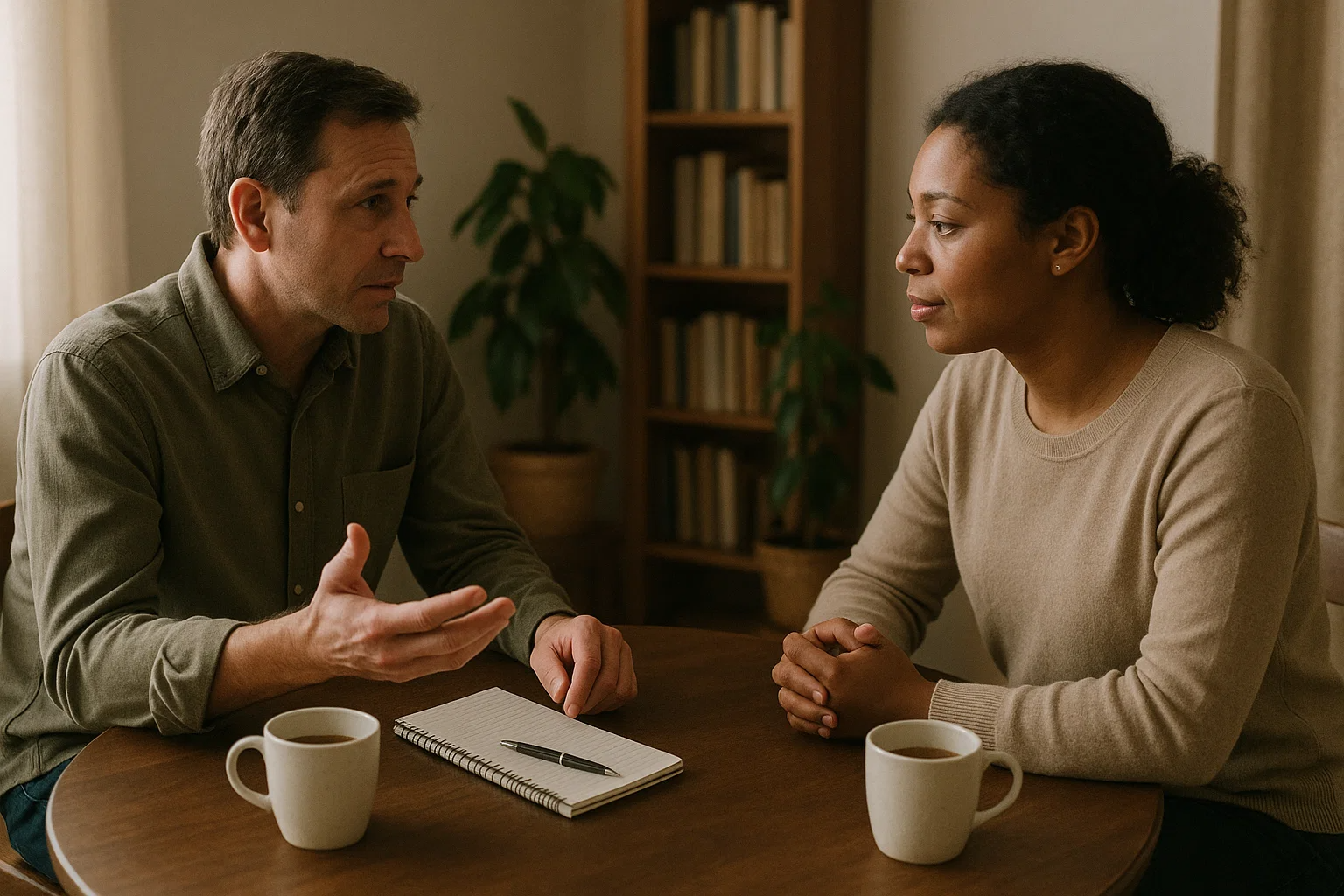Conflict Resolution
 Let’s face it—conflict is part of life. Whether it’s a sharp word at the dinner table, a tense conversation at work, or a simmering disagreement between friends, conflict shows up. It’s not a sign that something’s broken—it’s a sign that we’re human.
Let’s face it—conflict is part of life. Whether it’s a sharp word at the dinner table, a tense conversation at work, or a simmering disagreement between friends, conflict shows up. It’s not a sign that something’s broken—it’s a sign that we’re human.
But in a world where shouting matches go viral and “clap backs” are celebrated, it’s easy to forget that disagreement doesn’t have to become destruction. At EAPCS, we believe in handling conflict with clarity, respect, and a good dose of common sense.
The Real Goal of Resolution
Most people approach conflict like a courtroom drama: someone has to win, someone has to lose, and the louder you argue, the stronger your case. But real conflict resolution isn’t about winning. It’s about understanding. It’s about finding a path forward where dignity remains intact and relationships don’t have to burn to the ground.
Resolving conflict begins with letting go of the need to be “right.” That doesn’t mean giving up your point of view or pretending everything’s fine. It means recognizing that the point of a conversation isn’t always to correct someone—it’s to connect with them. The person on the other side of the issue isn’t your opponent. They’re your partner in figuring out how to coexist, move forward, or repair what’s strained.
The Power of Presence
When things get heated, the most valuable tool you have isn’t a clever comeback—it’s your presence. Staying grounded when emotions are rising is a quiet superpower. It gives others space to breathe, and it helps you hear what’s really being said beneath the noise.
Sometimes, it’s not about the issue at hand—it’s about someone feeling unseen, unheard, or disrespected. If you can be the calm in the storm, you’ve already shifted the dynamic in your favor—not to dominate, but to de-escalate.
This doesn’t mean you become passive or roll over. It means you keep your head clear. You stay rooted in your values and refuse to mirror someone else’s chaos.
Choosing Respect Over Reaction
Respect is a choice you make before you even open your mouth. It’s how you decide to frame your words, how you treat the other person’s dignity, and how you manage your tone—especially when you’re upset.
You can speak firmly without being cruel. You can disagree without dismantling someone’s self-worth. And when you do, you model a different kind of strength—the kind that builds bridges instead of burning them.
It’s not always easy. But it’s always worth it.
When Walking Away Is the Wiser Move
Not every conflict needs to be resolved in the moment. And not every conflict is yours to fix. Sometimes the best resolution is choosing not to engage—or choosing to revisit it after everyone’s cooled off.
There’s no shame in stepping back. Walking away isn’t weakness. It’s wisdom with boundaries.
Conflict as an Opportunity
Handled well, conflict can deepen trust. It can sharpen communication. It can bring buried issues to light and help people grow. When you approach it with integrity, even a tough conversation can leave both parties better off.
Conflict will happen. Escalation is optional. And at EAPCS, we choose the path of peace—not by avoiding difficult conversations, but by showing up to them with common sense, compassion, and courage.